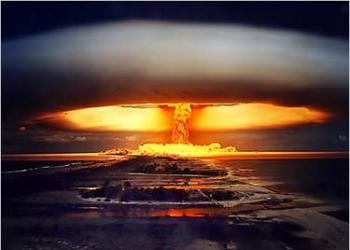Just What Is the End Time?

From the time of the early New Testament Church, people have asked, "When is the time of the end?"
Jesus' disciples asked Him for the signs that would precede His return. "Now as He sat on the Mount of Olives [on the east side of Jerusalem], the disciples came to Him privately, saying, 'Tell us, when will these things be? And what will be the sign of Your coming, and of the end of the age?'" (Matthew 24:3).
Jesus' disciples were familiar with Old Testament prophecies. They understood that the end of the age meant the end of human misrule on earth, replaced with the righteous divine rule of the promised Messiah.
They knew about prophecies such as the one from Daniel that foretold the coming Kingdom of God: "And in the days of these kings the God of heaven will set up a kingdom which shall never be destroyed; and the kingdom shall not be left to other people; it shall break in pieces and consume all these kingdoms, and it shall stand forever" (Daniel 2:44).
God promises to end human self-rule on earth because mankind has never produced a peaceful and lasting government. Indeed it cannot (Romans 8:7). Human history is largely a chronicle of wars, emanating from selfish human nature and motivated by "the god of this age," Satan the devil (2 Corinthians 4:4).
Since God has promised to remove all human governments at Christ's return, there is necessarily a "time of the end" or end of the age of man's rule on earth. This is what end time refers to—the end of this present evil age and the dawning of a new age under God.
The Bible uses various terms to refer to the end of the age of man's rule, such as "last day" (John 6:39), "last days" (2 Peter 3:3), "last time" (1 Peter 1:5), "last times" (1 Peter 1:20), "latter day" (Job 19:25, King James Version), "latter time" (Daniel 8:23), "latter times" (1 Timothy 4:1) and "the day of the Lord" (1 Thessalonians 5:2). To determine what each term means, one must consider context. For example, "the time of the end" in Daniel 8:17 and 11:35 and verse 40 is the period at the very end of this age of man's rule and the return of Jesus Christ.
The apostle Peter spoke about the last days beginning in his time (Acts 2:17) and lasting all the way to Christ's return, reflecting the fact that the trends Jesus foretold shortly before His death would soon begin, continuing and intensifying up until His return.
Again, context tells us whether the expression refers to such a long stretch of time or the brief period prior to Jesus' return.
To better understand the end of the age, request or download your free copies of the booklets You Can Understand Bible Prophecy,The Book of Revelation Unveiled and Are We Living in the Time of the End? GN
